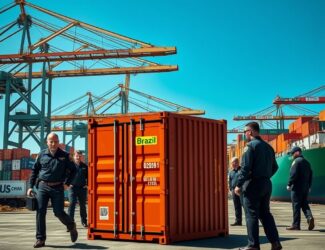
Global Coffee Prices Surge Due to Climate Challenges
Global coffee prices have experienced a significant surge, driven by adverse weather conditions in major coffee-producing countries, according to multiple sources including Bloomberg, DW, Nasdaq, and Food Digital.
In the first half of 2024, the price of robusta coffee rose by 40%. This sharp increase is attributed primarily to a prolonged drought in Vietnam, the largest exporter of robusta beans, which has faced poor harvests for the fourth consecutive year. Brazil, the leading producer of arabica coffee, has also seen its crop yields affected by unusual weather patterns, including heavy rains followed by dry spells.
The supply shortages from these two key producers have pushed prices up on major exchanges in London and New York. Analysts note that the speed of robusta’s price increase is the fastest since 2008. The National Coffee Association had anticipated a 10% reduction in yields due to dry weather last year, but the actual decline has been closer to 20% (DW) (World’s No.1 Food Magazine).
Fairtrade International and GEPA, Europe’s largest importer of fair-trade food, highlight that while higher prices might seem beneficial for farmers, the volatility and sudden price changes can cause significant strain. Climatic uncertainties, disruptions in trade routes, and speculative investments have created a challenging environment for both producers and consumers (Fairtrade) (World’s No.1 Food Magazine).
Brazil’s ambassador to Russia noted efforts to increase coffee exports to Russia, with a hopeful increase of 20% despite the complex global situation. This sentiment was echoed during the St. Petersburg International Economic Forum, emphasizing the unpredictability of coffee prices due to climate change and other factors (DW) (World’s No.1 Food Magazine).



